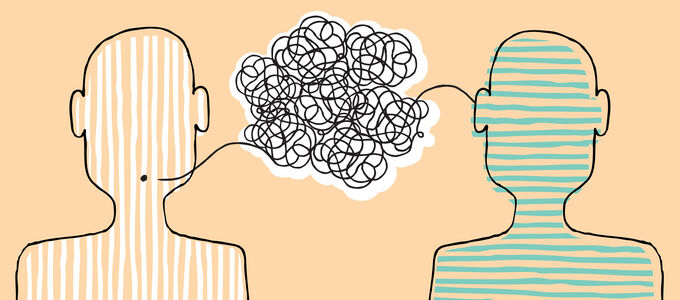
People tend to be quick to judge. But this has never helped anyone. And it certainly does not make difficulties any easier. Those who listen closely can help. Here is some counsel on how to provide real spiritual care for those coping with an abortion.
The New Apostolic Church says yes to life, and understands itself as an advocate for life. The Church also says yes to unbiased pastoral care. But can pastoral care really help? Yes, it can! After all, pastoral care is a proven means to make souls speak, but only if it is done properly.
Wrong pastoral care only makes matters worse. Soul care must never accuse and blame people. It must set them free from guilt. Guilt is not the path that will lead to peace of mind. An abortion is often preceded by a long decision-making process and a hard inner battle. Such an infringement on one’s personal inviolability does not happen lightly.
Support helps
“There is one image I will never forget: a woman walking to the train station with her backpack after the abortion. That’s exactly what abortion is like: very, very lonely.” This is one statement from a long list of testimonies.
Pastoral care beforehand—if it even comes to that—should carefully weigh and probe whether an abortion is unavoidable. The expectant mother should first of all understand that the life that is developing under her heart is not her “property”, over which she can freely dispose and decide. There is a human being inside her, who, although she does not yet have a voice of her own, has a right to life. These are facts that need to be addressed.
Ministers are of course well-advised not to hammer this into the heads of the mother or couple concerned. Unfortunately, this happens all too often and is counterproductive. Pastoral care means support—no more, no less! It is a matter of the heart, not of the head. And it certainly needs the support of partners, family, friends, professionals, and doctors.
Feeling helps
An abortion is irreversible for both the unborn child and the mother. Even years later, there is often still a great deal of regret and grief over this missed chance in life. Persistent feelings of guilt are not uncommon.
How does a woman feel after an abortion? Are there reliable answers to this question? Yes. Many feared the procedure, were worried about medical complications or feelings such as guilt or regret afterwards. And thoughts and feelings need to be processed: the parting, the grief, the relief, and the desire to convince oneself that the decision was right.
All of this belongs in an open and fair counselling conversation—if it is at all possible!
Speaking helps
Pastoral care afterwards—if it is desired—starts here: compassion, empathy, and warmth are the magic words here. Blame or appeals to the woman or couple’s conscience stay where they belong—outside.
While it is true that the physical wounds of an abortion heal relatively quickly, and the woman may even feel a sense of relief and be motivated to go back to a normal life, psychological disorders can develop, often only years later.
Coping with the loss of a human life, to which the expectant mother had a unique relationship, requires space for grief. Remorse, guilt, and the feeling of loss make their way to the surface and want to be processed.
Contact with another pregnant woman can be emotionally charged even years later. Medical psychology calls this post-abortion syndrome (PAS). The symptoms can be depression, anxiety, eating disorders, migraines, sleep disorders, self-destructive tendencies, alcohol and drug abuse, but also abdominal discomfort, sexual dysfunction, and gastrointestinal disorders. Therapy is not always successful.
Grieving helps
Since an abortion signifies an intrusion into the most intimate personality of the expectant mother, it is largely considered a taboo subject of grief counselling. Even those who are closest are often not even aware that an abortion has taken place. The woman’s fear to have to explain herself and deal with blame and guilt is often too great.
Yet precisely because of this active grief counselling is necessary and beneficial in helping the woman understand the loss of her child. She needs every bit of support to come to terms with what has happened and find peace of mind. The aim is to heal the wound in her heart.
Love helps
Ministers do not decide why and how the abortion took place, but look back with the mother on what she has suffered, give space to grief, and try to “bring” the lost child back to life. It needs a place, a name, a face. In this way, if everything goes well, there can be reconciliation with the child, reconciliation with oneself, and reconciliation with anyone else who was involved.
Reconciliation: is there a more beautiful motivation for effective pastoral care?













